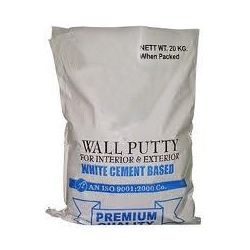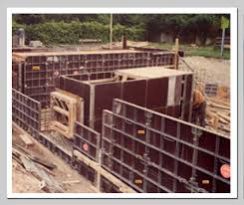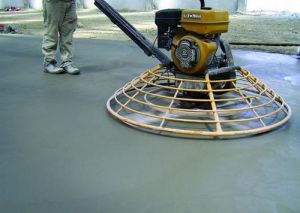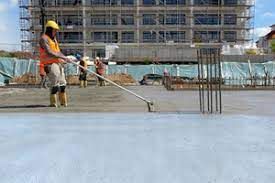
Wall Putty

Shuttering Oil

Floor Hardner

curing compound

cellular lightweight concrete
cellular lightweight applications. Using right category of foaming agent makes a huge difference in products such as the mechanical properties of concrete and it resistance etc. Synthetic foaming agents are such chemicals which reduce the surface tension of liquid and commonly used globally to make blocks, bricks, CLC concrete etc where the high density is needed and it requires less energy for formation as compared to other foaming agents. It is highly recommended to use in the constructional fields where requirement of light weight concrete is increasing by time.
...more
Foam making equipments
Cellulose Industries is failed due to lack of know-how of Foaming Agent and Foam Generator. Our Moto is not just to highlight the problems faced by CLC Induestries, but we came with the solutions.Very easily you can set the density for any foam, Always continues foam hence less foaming time (less than 2 min per cubic meter)
...more
Glossy Paver Blocks
Lacquer, the term lacquer can be defining as a coating of acrylic polymer which in common language can be called as putting. The work of lacquer is to give glossy looks and hard finish to cement materials basically to various kinds of tiles such as paver blocks etc. Lacquer is bifacial for use on almost all the kinds of cement products. Main motive of this is to give the surface a very hard and a glossy shine look. Which the help of this liquid the surface become stain resistant and it also give resistant to color fading as well. As compared to others this special kind of lacquer has good coverage area.
...more
Mould Release Oil
Mould release MRA-CP is a blend of some selected oils that are mineral based & chemicals (non hazardous) are specially combine to make such release properties which are better than the conventional mold oil. It is supplied in the form of white liquid which is in spray able state and can use directly. The chemical reactive components which are present in it give water proof interface which contributes in protecting the formwork and ensures quality color and texture of cast concrete. Additionally to prevent cement matrix adhesion to the mould releasing agent allows air during concrete placing.
...more
Non Metallic Floor Hardener
Non metallic floor hardener are the application which is mainly used for areas like heavy traffic places, industrial areas where there is heavy transportation ongoing, in such areas where loading transaction is continuous, warehouses, vehicle maintenance center, processing plants such as medical or steel etc., distribution centers, and so forth. This application imparts almost about 150 % - 200 % more resistance of abrasion as compared to plain cured concrete for becoming an integral part for it. By reducing the porosity it minimizes the dusting.
...more
Polysulphide Sealants
Polysulphide sealants are the resins which basically provide a very flexible and also resistance that is chemically adhesive. The component �Polysulphide� resins were very commonly used in the form of construction sealants. Epoxy and polysulphide are the two component resin that provides a greater toughness to adhesive and it also sacrifices the tensile strength as compared with the pure form of epoxy resins. Polysulphide sealants have a huge resistance to salt water, ozone, sunlight and fules. Uses Mainly they are used in construction process and the basic use of �Polysulphide adhesives� is to seal off the different kinds of channels and various types of joints. It provides a seal which is totally waterproof and due to it, it minimizes the water leakage risk in area, any kind of damage and erosion. For applying this, one has to use caulking gun or you can pour it directly on the surface through container on a large surface where application is supposed to be applied. To adhere properly the area of application surface should be clean with great awareness that no impure material should left on surface. For example: Before using �Polyadhesive resin� clean the non-porous materials like glasses or any metal with toluene. The sealants which are made with sulphides are mainly used in huge engineering applications specially in the field of civil work, the area of application also includes the sealing of channels in various reservoirs, canals, culverts, dams and also in major works like flood control waterways. The �Polyadhesive sealants� are also used in public traffic areas in various ways, such as contraction & expansion of joints in the floor or in sidewalks; they can easily forms a very flexible bond which can expand and also contracts with various conditions of weather without breaking it down. �Polysulphide sealants� are also used in the industry of aerospace for sealing of fuel tanks and also for fuselages of aircrafts. Since the sealants become resistance to fuels and to other kind of chemicals, they provide a very secure kind of long lasting seal in the components of aviation.
...more
Foam Generator
Cellulose Industries is failed due to lack of know-how of Foaming Agent and Foam Generator. Our Moto is not just to highlight the problems faced by CLC Induestries, but we came with the solutions. Works upto 8kgcm2 pressure. High foam flow rate. Very easily you can set the density for any foam Always continues foam hence less foaming time (less than 2 min per cubic meter) Production cycle time reduces Uniform production of foam.
...more
cement wall putty
Packaging Type : HDPE Bag
Brand Name : Addage
Application : Construction
State : Power Coating
Country of Origin : Made in India
Color : Off-White
...more
Metallic Floor Hardener
Packaging Type : Bag
Brand Name : Addage
State : Granules
Packaging Size : 40 Kg
...more
Cement Pole
Superplastizers is defined as the huge range of water reducers, which has some chemical mixtures. This chemical reaction is used to reduce the particle production in the concrete element mixture. These polymers have dispersants and fluidifier, which has more ability to reduce the water substance. These admixtures are used to increase the strength and properties of concrete elements. There are four types of Superplastisizer are available, those are Sulfonate naphthalene formaldehyde condensates (SNF), Sulfonated melamine formaldehyde (SMF), Pliycarboxylate derivatives (PC) and Modified Lignosulfonates (MLS). These elements are classified based on the strength, precast, performance and compacting.
...more
cellulose fibers
These are powdered cellulose fibers. They are water insoluble cellulose. Akulcel-CP is produced in various qualities ( fiber length, thickness purity) for variety of industrial application. Application / Advantage It is specially designed for cement and minerals based application Like Tile Adhesive Stucco / Plaster Joint Filling Compound Skim Coat & Putty Properties Good Water Retention and Rhickening Effect Better Slump Resistance Crack Inhibitor Reduced Shrinkage No stickiness Like Cellulose Ethers Long open Time
...more
Lacquer
Lacquer, the term lacquer can be defining as a coating of acrylic polymer which in common language can be called as putting. The work of lacquer is to give glossy looks and hard finish to cement materials basically to various kinds of tiles such as paver blocks etc. Lacquer is bifacial for use on almost all the kinds of cement products. Main motive of this is to give the surface a very hard and a glossy shine look. Which the help of this liquid the surface become stain resistant and it also give resistant to color fading as well. As compared to others this special kind of lacquer has good coverage area. Benefits: Lacquer, it forms a film on the surface which is very hard. It gives high gloss and very good shine to surface. It has an excellent resistance of abrasion to surface which adds a good advantage to any surface. It is very appreciable alkali or water resistance. Good to use on any kind of cement product. Mostly it is used in construction industry for giving the structure perfect shine and glossy effects. As things are modifying by passing time so as the use of chemical in construction industry. Chemicals like �Lacquer� are very popular in market now days due to its quality and results. It can give any surface a shiny look with glossy effects which can add infinite beauty to any structure especially to tiles and paver blocks.
...more
Admixtures for concrete
Concrete admixtures they are basically concrete ingredients which is other than water, Portland cement and aggregate which are added in mix very immediately before mixing. Mainly the producer�s use admixtures for reducing the concrete construction cost, for modifying the basic properties of harden concrete; it also ensures the concrete quality during the process of placing, mixing, curing and transporting and also to overcome on certain kind of emergencies during the operations of concrete. A successful admixture usage totally depends on appropriate concreting and batching methods. Maximum admixtures now days are supplied in the form of liquid which is ready-to-use which is usually added in concrete on jobsite or at plant. Certain kind of admixtures for example: expensive agents, pigments and pumping aids are usually used in very small amount and they are batched through hands from a premeasured container. Admixtures effectiveness totally depends on various different aspects which include: temperature of concrete, type of cement, slump, mixing time, amount of cement, water content and temperature of air. The admixture concrete's chemistry is a bit complex topic and requires a depth knowledge and experience before adopt its usage. A general and very basic understanding of variety of concrete admixture is important for picking right one as per your needs. Based on functions the admixtures can be easily classified in five major categories. They are mentioned as follows: Water Reducing Admixtures: It is normally used to reduce the required content of water for concrete mixture approx. to 5-10%. Retarding Admixture: This helps in slowing down the setting rate of concrete, it is basically used for counteract the effect of accelerating hot weather on the setting of concrete. Accelerating Admixtures: It increases the early strength rate of development; it also reduces the required time for protection and proper curing, and it speeds up and starts the finishing operations. Super Plasticizers: It is very well known as a high range water reducer it�s abbreviate is (HRWR) or also as plasticizers, it can easily reduces the content of water by approx. 12% to 30% and it is added to concrete with very low to a normal slump and added to water-cement ratio for making high-slump flowing of concrete. �Flowing concrete� it is basically a very high fluid but it is a workable type of concrete which can be easily placed with almost little or no compaction or vibration. Effect of super plasticizer lasts to approx. 30-60 minutes which vary on the dosage rate and the brand. It is followed by very rapid loss in the workability of concrete. At jobsite the main motive of adding superplasticizer is to avoid slump loss. Corrosion Inhibiting Admixtures: This kind of admixture is basically used to slow the reinforcing of steel in concrete. Features It is admixture for concrete which has water reducing properties. With the help of it dense, workable and durable, concrete is produced. Concrete admixtures help in reducing the content of cement to the particular required strength. It helps in gain early strength. Gives lower permeability and also improves the workability. It reduces the ratio of water cement almost up to 15%. It has very high workability retention. It provides moderate retardation in the concrete. It also produces the pump able concrete. Standards Is : 9103-1999 and astm-c-494-86, type a & d.Product Code : AP-30B
...more
industrial grouts
Grouts it is one of the prominent chemical in the field of construction. It fills the minor parts and gives a professional and high quality looks to the interior and exterior parts of any infrastructure. As the name defines grouts works for the purpose of grouting. Professionals highly recommend the use of grouts for roofing, flooring and walls tilling. Grouts are manufactured by mixing high quality of chemicals and its compounds due to it; it becomes perfect for various applications. Grouts are basically of two types basic tile grout, grout-22. Tile grouts are used to fill the gaps which are normally caused while fixing the tiles on floors and walls, by applying grouts on those gaps the looks become more perfect. Grout-22 is used when the infrastructure get completed and there are some tit-bit cracks are present on any place, to fill that gap grout-22 is used. Features: It gives very effective results It has optimum quality It has standard composition
...more
Tile Adhesives
'Tile Adhesives' basically it's polymer a blended one which is modified the base with powdered cement tile adhesive. It provides a excellent bond on the any kind of cementations surfaces such as: plaster or concrete etc. Tile Adhesive, can forms a barrier which is waterproof, between two different surfaces and it gives a very excellent properties of `grabbing`. Area of Application For fixing different kinds or almost all kinds of tiles such as walls specially the internal one, floors both external and internal floors and also the tile on tile application. Features & Benefits It is such kind of mixture which can be use just by adding water. Due to its low shrinkage property it gives excellent adhesion. It is very perfect for using on tile on tile application and for indoor tiling. It is very flexible for accommodating the thermal and also physical movements. It requires almost no amount of curing and needs no mechanical or hacking of the surface. The floors where tile adhesive is applied it can be usable only after 24 hours. No backing surface and soaking of any tile is required in any way. Method of Application The surface which should be supposed to tile it should be free from all kind of dust and impurities. Older surface should get free from later layes of any kind of wax or grease or any other impurities. While making mixture add 3 portions of water in it and a part of powder Mix and stir with trowel and slow down its speed or maintain it on approx. 50-100rpm until a homogeneous and hump free paste obtained. While spreading the adhesive, spread it evenly with the thickness of approximately 3-6mm. After applying the adhesive paste make sure that the place should b tile in between 15-20 minutes. If you fail to apply the tile in the above mentioned time first substrate by the finger and if it get slicked then continue tile fixing and if not than scrape off all the reaming adhesive and apply a fresh layer to continue the further tiling. It is necessary to keep joints in between the two-tiles, it would be best to use spacers to maintain the equal distance between all the tiles. Firstly allow tiling space to set for approx. 24 hours minimum and then start filling the gaps or joints in next day. Precaution & Limitations Make sure to add powder in water never follow the rule of adding water to powder. Follow the recommended directions of adding water and do not add more than suggested. Never use any kind of cement or sand on site . Make sure the surface will be in sound condition before doing application.
...more
Bonding Agent
Bonding Agent is a acrylic copolymer specially developed to improve the bonding properties of cementitious compositions. When used in combination with standard quality of Ordinary Portland cement, enhances the mechanical properties such as bonding(adhesion) with various building materials, flexural, compression and impact strength, Bond it improves the thin section fragility of cement when used as coating. Bond it is an admixture polymer cement composite for multipurpose use i.e. bonding of cementitious material, waterproofing, surface protection, repair rehabilitation, floor topping, etc. Features & Advantages Bonds (adheres) strongly to most of the building materials. Cures to a hard, tough, wear resistant surface. Can be applied to uniform thickness coating on horizontal and vertical surfaces. Allows trapped water vapour to escape but prevents ingress of moisture blistering and adhesion failure Makes cement mortar or coating compact thus preventing salt penetration into concrete. It is unaffected by UV light and prevents discolouration of concrete. It will not corrode reinforcing steel Coating is highly durable even in continuous contact with water. It is resistant to water, dilute acids and alkali solutions. It is non-flammable, non-hazardous. Does not evolve toxic gases when exposed to fire Non toxic to human beings. Most properties improve on ageing
...more
Shuttering Oil / Mould Release Oil
Mould release agents are the form of oil which gives easy and clean surface of shutter. It ensures very high quality and good kind of concrete and with the help of it concrete becomes stain free and gives it fair faced as well. The shuttering oil which comes in different form is beneficial for all different kind of platforms such as aluminium framework, wood, plastics framework, steel etc. Some of the most common yet so beneficial types of release oils are as follows. Some very beneficial and famous shuttering oils in construction industry are: (DSO):- it is well known in construction industry as De-shuttering oil: - These oils can simply be diluted with water. It is basically a shuttering agent which is well known as releasing agent specially used in mould. Its ratio of dilution is approximately ratios of 1:3 to 1:5.[click to continue] (DSOE):- in construction industry this term is explained as De-shuttering oil emulsion: - This oil requires almost no dilution; it comes in such form that you can instantly use it without any dilution process. No need to dilute it with water. (DSOC):- this chemical is well known as De shuttering oil concentrate in construction industry: - This oil is dilute-able and used basically as mould release agent. Dilution ratio of de shuttering oil is 1:5. (MRA ALU):- a kind of Mould release agent: - It is used for the shuttering of aluminium products or its framework or any kind of aluminium system.[click to continue] (MRA MC):- is also a form of Mould release agent: - This oil is used for the releasing of concrete bricks and also for concrete�s block machines. (MRA CLC):- is another kind of Mould release agent:- This oil is specially made for CLC blocks and various kind of bricks.[click to continue] (MRA CP):- This is also a type of Mould release agent which is basically used for pipes, different kinds of sleepers and poles.[click to continue] (MRA RME):- Silicone Emulsion(Milky) Mould release agent for rubber mould specially formulated to produce release properties which are superior to those of conventional mould oil[click to continue] (MRA RM):- It is used for the releasing of rubber mould. Two kind of mould release agents for rubber are present one is silicone emulsion and silicone based.[click to continue] Silicon based release agents are such kind of mould release oil which causes no harms to rubber mould. Normally people are not much aware of this type of oil and they use general shuttering oil as a realising agent for rubber mould. But it causes damages and cannot deliver desired results also. Silicon based oils are best for rubber mould. It can be used in door frames or paver blocks etc. Direction of Use: Usage of shuttering oil is easy but requires few basic precautions in the same time. Initially you have to choose right kind of shuttering oil according to your manufacturing industry. You should make sure about the properties of goods produced in your mould. Like if you are manufacturing silicon products choose MRA RM shuttering oil or for poles use MRA CP oil etc. Now put the oil on inner surface of mould, prefer usage of any spray as it assures that oil will evenly spread in every particular area of mould. It is highly recommended to repeat the process twice so there will be no place that left vacant. Now put the mixture inside moulds, the density and materials of mixture vary through industries and so as its thickness, so it is better to place mixture inside mould with the help of any machine which can easily spread it evenly inside the mould. Safety Precautions: To get accurate results make sure that inside surface is free from previous impurities. Atmosphere affects a lot on oils so try to maintain the desired atmosphere around mould. Once mixture sets inside the mould and gain strength remove it from mould. Time consumption will vary for various industries and products.
...more
Powderd Cellulose Fibers
Powderd Cellulose Fibers Akulcel CF Product Description These are powdered cellulose fibers. They are water insoluble cellulose. Akulcel-CP is produced in various qualities ( fiber length, thickness purity) for variety of industrial application. Application / Advantage It is specially designed for cement and minerals based application Like Tile Adhesive Stucco / Plaster Joint Filling Compound Skim Coat & Putty Properties Good Water Retention and Rhickening Effect Better Slump Resistance Crack Inhibitor Reduced Shrinkage No stickiness Like Cellulose Ethers Long open Time
...more
Tile Fixing Solutions
Tile Fixing Solutions Tile Adhesives 'Tile Adhesives' basically it's polymer a blended one which is modified the base with powdered cement tile adhesive. It provides a excellent bond on the any kind of cementations surfaces such as: plaster or concrete etc. Tile Adhesive, can forms a barrier which is waterproof, between two different surfaces and it gives a very excellent properties of `grabbing`. Area of Application For fixing different kinds or almost all kinds of tiles such as walls specially the internal one, floors both external and internal floors and also the tile on tile application. Features & Benefits It is such kind of mixture which can be use just by adding water. Due to its low shrinkage property it gives excellent adhesion. It is very perfect for using on tile on tile application and for indoor tiling. It is very flexible for accommodating the thermal and also physical movements. It requires almost no amount of curing and needs no mechanical or hacking of the surface. The floors where tile adhesive is applied it can be usable only after 24 hours. No backing surface and soaking of any tile is required in any way. Method of Application The surface which should be supposed to tile it should be free from all kind of dust and impurities. Older surface should get free from later layes of any kind of wax or grease or any other impurities. While making mixture add 3 portions of water in it and a part of powder Mix and stir with trowel and slow down its speed or maintain it on approx. 50-100rpm until a homogeneous and hump free paste obtained. While spreading the adhesive, spread it evenly with the thickness of approximately 3-6mm. After applying the adhesive paste make sure that the place should b tile in between 15-20 minutes. If you fail to apply the tile in the above mentioned time first substrate by the finger and if it get slicked then continue tile fixing and if not than scrape off all the reaming adhesive and apply a fresh layer to continue the further tiling. It is necessary to keep joints in between the two-tiles, it would be best to use spacers to maintain the equal distance between all the tiles. Firstly allow tiling space to set for approx. 24 hours minimum and then start filling the gaps or joints in next day. Precaution & Limitations Make sure to add powder in water never follow the rule of adding water to powder. Follow the recommended directions of adding water and do not add more than suggested. Never use any kind of cement or sand on site . Make sure the surface will be in sound condition before doing application.
...more
MASONRY MORTAR
Masonry Mortar' you can called it in simple terms as ready mix plaster which comes with the combination of high quality and perfect amount of sand cement and concrete mix together, all you need is to mix that mixture with water and make the desired thickness you want to apply in the form of plaster on walls or to join bricks or tiles on walls floors etc. This mixture is very useful in today's construction due to less time and demand of perfection. What's inside 'Masonry Mortar?' In the mixture there are few materials which are picked and choose wisely then mix together and form a simple yet very beneficial product for the field of construction. Masonry cement's blend, graded sand and polymers are the main ingredients of this product. Benefits: This product is long lasting and also has strong bonding which is specially designed to reduce the impact of environment, it also improves the energy efficiency and the coasting of maintenance as the product is long lasting. It also maximize the life of infer structure. The product is eco-friendly as well. It helps in saving construction cost by saving on water, labor, energy and site logistics. This technique is free from curing which save the most precious natural resource �water� directly. Application : Before applying this application on any surface, such as AAC or block surface make sure that should be free from any impurity like dust or any other small particles on surface. Always use a blush to apply this chemical on any surface. Before applying Masonry mortar makes sure that the surface is wet. For using Masonry Mortar you should apply it with notched trowel vertically & horizontally over both surfaces of any blocks and then place in on position. It is necessary that you cannot move or disturb the blocks and bricks unit after the setting of mortar; it causes the breakage of bond. Limitations : Once the adhesive get applied on blocks or the surface of bricks curing is not required in any manner. As the product is air dried the curing time and it fluctuates according to the atmospheric ambience and rising of temperature. Advantages : The chemical is ready to use which decrease your construction time and labor cost both. There is no kind of curing is required in this chemical it is has self curing capability Water Resistant It saves time It is very easy to apply on any surface It has excellent bonding quality. Masonry Mortar has crack resistance quality. It saves labor cost. It is non hazardous. It is not required for wall to reinforcing liners. There is no limitation for the infrastructure heights. Wall becomes ready to apply plastering in few hours, it totally depends on the conditions of climate. It saves the handling of material. It causes no material wastage. No need of any kind of supervision for the procurement of Material & its preparation. It gives an excellent adhesion to all basic construction substrates that cannot be found in the conventional Mortar. Storage and Shelf Life : As all the chemicals required a typical kind of curing so as Masonry Mortar required. It needs maintain environment, the product should always be kept from direct sunlight, any kind of extreme heat and always kept it in dry place. This chemical is non-reactive and non-hazardous to almost all kind of alkalies. It is highly recommended from professional to store it in plastic jar for its extended life.
...moreBe first to Rate
Rate ThisOpening Hours